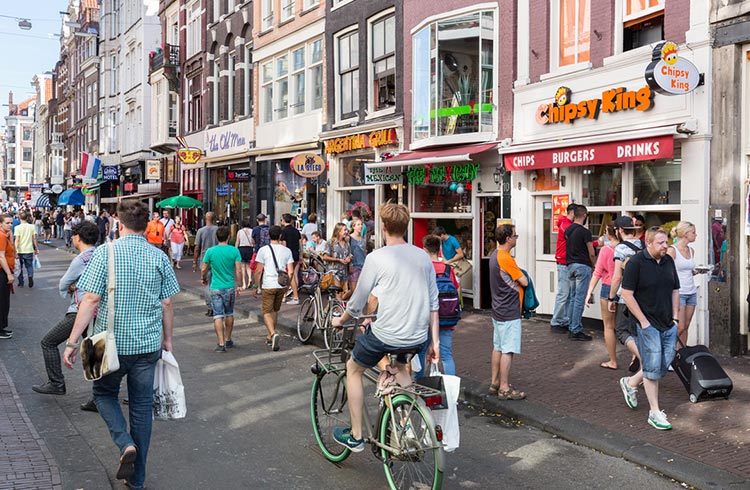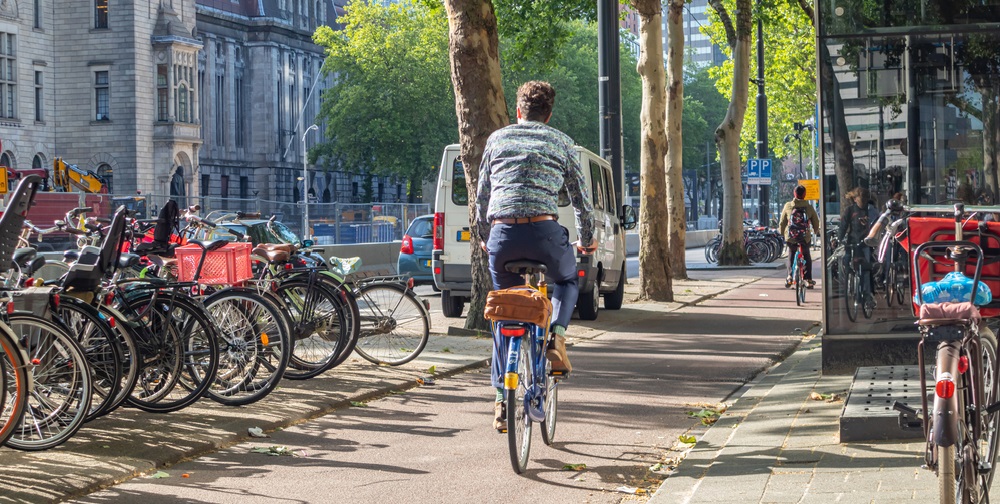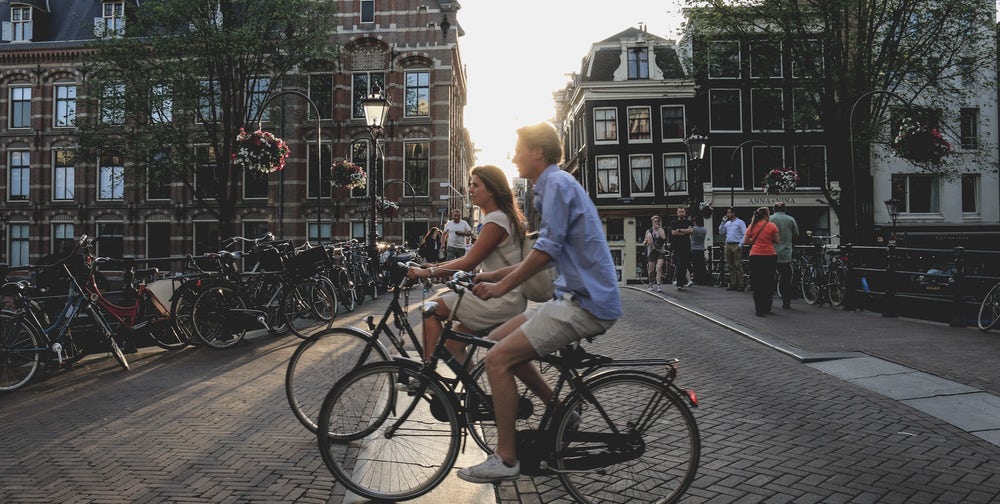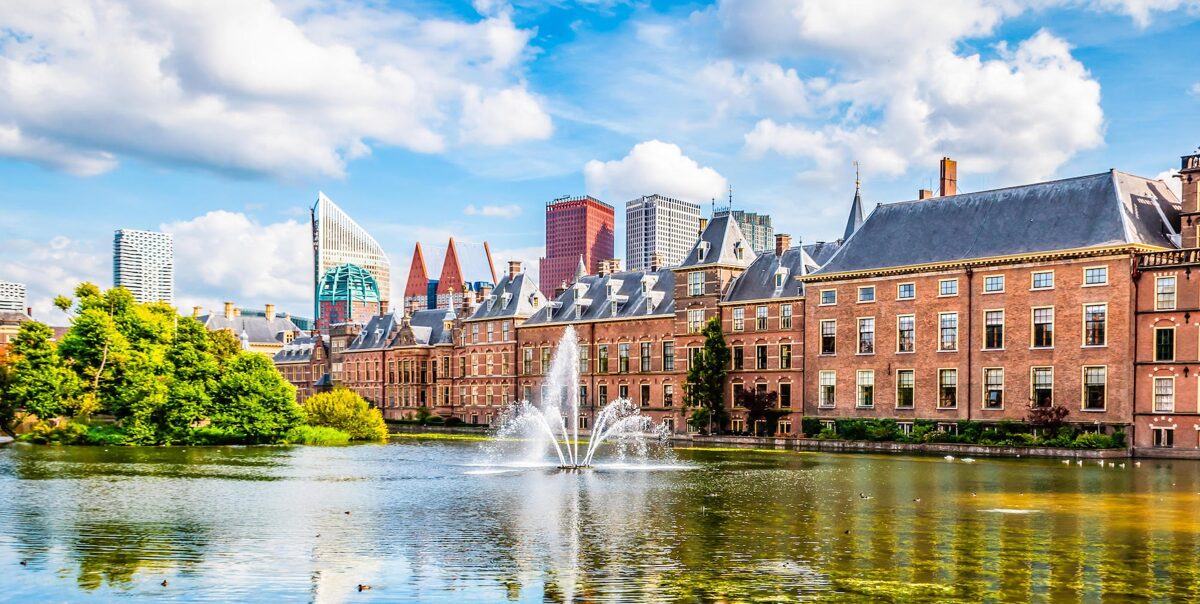Is it worth to live in the Netherlands?
Whether you are relocating for work, school, or a change of scenery, moving to a new nation can be intimidating.
Therefore, you should think about things like cost of living, community, education, safety, jobs, and the environment before relocating to Holland.
Living in the Netherlands provides benefits and drawbacks in accordance with Newton's third law, which states that "every action has an equal and opposite reaction."
Decide whether to relocate to the Netherlands after weighing the benefits and drawbacks.
Pros of Living in the Netherlands
Let’s look into the advantages of moving to the Netherlands:
1. Excellent health instruction
The Netherlands is ranked as the third-most educated nation by the World Economic Forum. Compared to the OECD average of 79%, more adults between the ages of 25 and 64 (81) have completed upper secondary education. Your kids' education will be in good hands if you move with them since youngsters learn to read and write, conduct research, and master math, science, economics, and social skills. Additionally, the Dutch educational system promotes job advancement.
2. Healthcare system
One of the best healthcare systems in the world is found in the Netherlands. When you move there, your health is taken care of because of the high standards and knowledgeable employees at the medical facilities. Both public and private health care are available. The government controls the public level, therefore primary care has set costs. While children under the age of 18 are covered by their parents' insurance, insurance firms also offer health care.
3. Contented and Warm Communities
Humans are sociable creatures that demand regular interaction and close friendships. The people of the Netherlands are warm and will engage with you and extend a warm welcome. A welcoming neighborhood is beneficial when you're experiencing homesickness. It's more difficult to join a social group. But when a Dutch person accepts you into their inner circle, you realize how warm, caring, loyal, and trustworthy they are. You can develop relationships with people in parks and during barbecues, as well as your coworkers and neighbors.
4. Modern Transportation Infrastructure
The Netherlands is not as big as other countries, so getting around is simple. Everywhere there is public transit, including trains, buses, trams, and metros. Its modest size makes it unnecessary to make lengthy journeys from one location to another. Due to its relative flatness, the Netherlands has a strong riding culture. If you buy a bike, you can ride it to your destination since there are designated bike lanes. Cycling is also healthy and environmentally friendly.
5. The Use of English Is Still Valid
The language barrier makes life in the Netherlands much more difficult when relocating to a new nation. The majority of individuals in the Netherlands' major cities, including Rotterdam and Amsterdam, are able to communicate in English. You can set yourself the objective of learning Dutch. But even if you don't, you can still proceed. Despite not being an English-speaking nation, the majority of Dutch people are literate in the language.
6. Job Security and Availability
Every year, the Netherlands takes in roughly 50,000 foreign workers. More above the OECD average of 66%, 78% of the population between the ages of 15 and 64 are employed. In the Netherlands, getting a job is a challenge in and of itself. Still, it's not impossible. The Netherlands has well-paying jobs with accommodating hours to avoid burnout. Some employment services actively seek for foreign workers, which makes it simpler for you to land a position. However, if there are no vacancies available for you to fill, the agency will let you know as soon as a vacancy becomes available.
7. The ideal climatic conditions
Warm summers and chilly winters are the norm for the Netherlands' marine climate all year long. However, climatic changes are unexpected as a result of global warming. From March to May, you'll experience spring and fall, and rain showers from April to September. The Netherlands is stunning in the spring when the tulips and daffodils are in bloom. The summer months of June through August are warm but not oppressively so. From November to March is winter, which is characterized by a lot of cold, snow, and fog.
8. Superior Safety
The Netherlands was rated as the 21st safest nation in the 2021 World's Safest Country ranking. However, no place is completely safe because you could become a victim of petty crimes like pickpocketing. Safety is a legitimate concern when relocating to a new country, particularly for families with young children and women traveling alone. In general, the Netherlands is secure. However, you should exercise caution and stay away from high-crime areas. Safety measures like installing a burglar alarm, locking your car, and locking your residence when you leave.
9. Delicacies That Will Make You Gag
AVG'tje, pea soup, hutspot, stamppot, pancakes, hachee, brown bean soup, and huzarensalade are a few examples of typical Dutch foods. The cuisine of the Netherlands is diverse because it incorporates dishes from all around the world. As most items are used in all cuisines, you don't need to worry about food. You will therefore receive a dinner you will like, regardless of whether you prefer your cuisine spiced, smoked, vegan, fried, or dried. Additionally, the majority of the components for Dutch dishes are produced in the Netherlands, not to mention the cheeses.
Cons of Living in the Netherlands
In the Netherlands, you will face some difficulties.
1. High taxes
The tax burden on a single worker in the Netherlands is staggeringly high at 36.1%. In terms of high taxes, the Netherlands is ranked number 22 out of the 38 OECD members. 70% of the entire tax burden comes from income and social security. Couples with two kids pay a tax of 29.1%. Additionally, the government offers assistance for kids to help parents' lives a little bit.
2. A racist attitude
Sadly, racism is still very much alive in the Netherlands. There were 2695 reports of racism or racist intentions in 2011. However, since then, only 1433 reports have been reported. The main cities, Rotterdam and Amsterdam, are the sites of the majority of racist incidents. During social interactions or job interviews, racism is frequently discernible.
3. Housing Crisis
In the Netherlands, there is an enormous housing problem. So before moving to live here, it's imperative to look for a place. There are either furnished or unfurnished flats available. The furnished homes come with outrageous rent prices. Although renting an empty home may seem like a good deal, you have to buy everything, including carpeting and necessary equipment. Additionally, landlords overcharge their renters as a result of the housing shortage.
4. Regularly Bad Weather
Summer in Holland lasts from June to September. After then, it's either wet or bitterly chilly outside. You just want to be indoors as the weather decreases. The Dutch are accustomed to the cold; some of them even cycle while it snows. You spend half the year indoors because the weather and the seasons are erratic. Additionally, spending that much time alone indoors without companionship might be monotonous and lonely.
5. Language Difference
Even though the majority of Dutch citizens are conversant in English, this is insufficient. The majority of descriptions, announcements, items, and parcels are in Dutch, therefore you'll need to learn it. You must utilize Google Translate while visiting locations like supermarkets and train stations until you become fluent in the language.
6. Expensive Way of Life
In the Netherlands, everything seems to be pricey, including rent, groceries, shopping, and ticket costs. You'll spend more on bus or train tickets than on groceries. Costs are high in the service sector as well. To save money on fixing damaged goods, you might need to learn how to conduct some small repairs yourself. In the Netherlands, owning a car will empty your bank account. You'll also need to budget for costs like fuel, servicing, repairs, and insurance. So you might want to reconsider using your automobile to get about.
7. Tough Laws
The Dutch follow the regulations. Rules and regulations are adhered to strictly. Planning and organization are taken very seriously because, no matter how casual the meeting, if you are going to be late, you need to let the appropriate people know. The Dutch do not tend to value spontaneity.
8. Dissatisfied Customers
Your level of patience will be put to the test by Dutch customer service. The service sector will be less helpful and even more challenging to understand. You shouldn't expect much help from the service sector.
| Pros of Living in The Netherlands | Cons of Living in The Netherlands |
| 1. Great Health Education | 1. High Taxes |
| 2. A Working Healthcare System | 2. A Sense of Racism |
| 3. Happy and Welcoming Communities | 3. Housing Crisis |
| 4. State of the Art Transportation System | 4. Periodical Bad Weather |
| 5. English is Still Applicable | 5. Language Barrier |
| 6. Job Availability and Security | 6. High Cost of Living |
| 7. Perfect Climatic Environment | 7. Strict Rules |
| 8. High-Level Safety | 8. Customer Service Upsets |
| 9. Mouth-Watering Delicacies |





